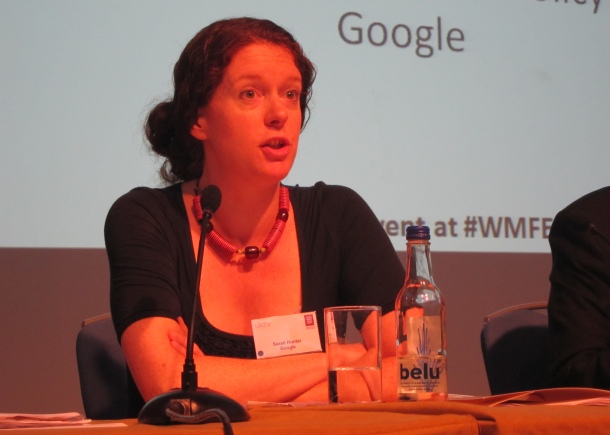Google wants website-blocking debate opened to public

Google has pleaded with the UK government to open up back-room discussions about website-blocking to the public and parliament.
For months, communications minister Ed Vaizey has been in talks with communications providers, rights holders and various other interested parties to explore the viability of blocking access to websites that, for example, facilitate copyright infringement.

However, these discussions — which may ultimately lead to a UK-wide firewall — have been going on entirely behind closed doors, much to the ire of rights groups and, it seems, Google.
"There are conversations that the government has instigated," Google UK regulatory chief Sarah Hunter said at a Westminster Media Forum on Wednesday. "We've said from the outside that this isn't something companies should make decisions on. People feel very strongly about how the internet is delivered to them."
"If the government wants to make laws about blocking websites, then they need to discuss it with the public and parliament," Hunter continued. "I hope that... everyone who has a stake in the internet can have their voice heard."
Hunter was something of a lone voice at the conference, which was dedicated to discussion of the forthcoming Communications Act revamp. Dee Forbes, the chair of commercial broadcaster group Coba, said the Digital Economy Act and the website-blocking idea were both "good steps" on the part of the government.
David Wheeldon, BSkyB's regulatory chief, argued that website-blocking was necessary to "preserve and value investment in UK content".
"We need to do something to protect that, otherwise we're undermining an industry that's economically and culturally and socially very important to us," Wheeldon said. "A lot of [copyright-infringing sites are run] by people who are not located within the easy jurisdiction of our current media framework. They're located overseas and they're exploiting the content we've invested in and value."
Hunter hit back at Wheeldon, saying it was still questionable whether or not blocking those websites on a national level was "the right way" to fight infringement.
"For lots of reasons, we should be very cautious about leaping to something without a full public debate," Hunter said.
For now, the most the public gets to hear about the website-blocking debate comes from messages such as this, posted to Twitter by Open Rights Group (ORG) chief Jim Killock on Wednesday: "Interesting meeting with @edvaizey this morning about web censorship. Wanted to know who ORG is and what we would do about infringement."